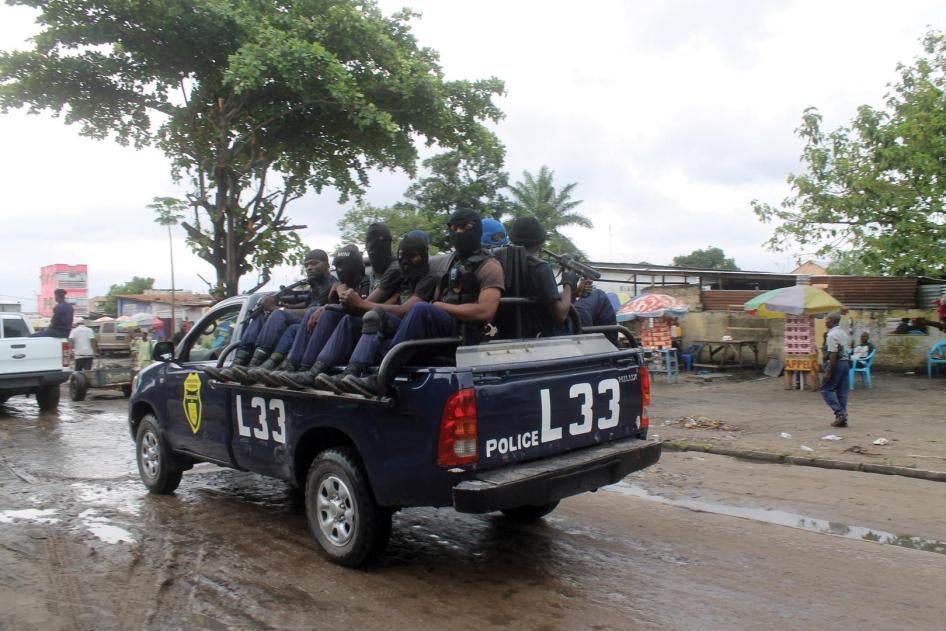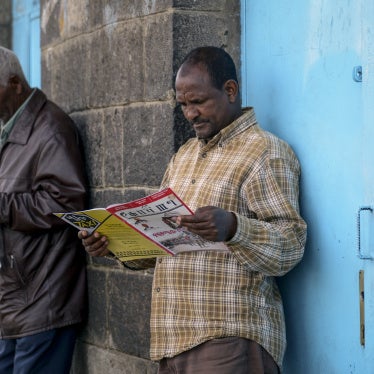More than two years ago, police in the Democratic Republic of Congo shot dead at least 51 young men and boys, and forcibly disappeared another 33, as part of a brutal police campaign called Operation Likofi. Today, the government publicly presented the findings of its long awaited report on the operation.
While the report acknowledges some cases of police misconduct during the operation, it falls far short. It does not recognize the full extent of the abuses or call for those most responsible to be brought to justice.
Operation Likofi, conducted between November 2013 and February 2014, had the ostensible goal of ending violent crime by so-called “kuluna,” or gang members, in Kinshasa, Congo’s capital. But the police campaign ended up spreading further violence and fear. Human Rights Watch research found that police officers with masks covering their faces dragged suspected kuluna from their homes in the middle of the night and shot them dead in front of their family members and neighbors. The bodies of some of the victims were taken away by the police, and their families were never able to organize funerals. Other suspected kuluna were arrested and never heard from again.
When the government admitted that 421 unidentified bodies had been buried in the middle of the night in a mass grave in Maluku, on the outskirts of Kinshasa, families of those killed or forcibly disappeared during Operation Likofi feared that their loved ones may have been among those buried there. To date, there is still no clarity on who was actually buried in Maluku.
The police’s blatant human rights violations during Operation Likofi provoked widespread condemnation and led the United Kingdom and United States to suspend their police reform programs in Kinshasa. The Congolese government then promised to carry out an investigation and make its report public.
With the government report’s findings finally made public – more than two-and-a-half years after the operation began – Congolese authorities should now ensure that those most responsible for the abuses are criminally investigated and appropriately prosecuted, including the operation’s commander, Gen. Célestin Kanyama, who is now police chief for all of Kinshasa. The victims and their families deserve no less.










